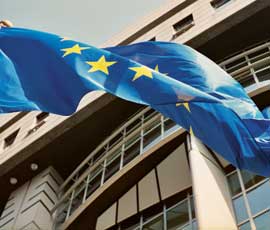Maintain CAP budget, say Euro MPs

Euro MPs have called for the CAP budget to remain unchanged until 2020 so farmers have incentives to provide secure food supplies.
A non-legislative resolution calling for an unchanged EU agriculture budget was adopted by a show of hands on Thursday (23 June).
Maintaining the budget would help promote environmental protection, create new jobs and provide for a competitive EU farming sector, it said.
The European Parliament staked out its position ahead of European Commission proposals on the future of the CAP. In response to rumours of cuts in aid for rural development, MEPs stressed their support for adequate funding for this area.
“The vote sends a clear, strong signal to the commissioner,” said Albert Dess, the German MEP who drafted the resolution. “I hope the commission will bear in mind what we have put into the report and incorporate it in the final legislative proposal.”
MEPs believe the CAP must be “adequately funded” if it is to provide secure food supplies while contributing to environmental protection and renewable energy. Doing so would encourage farmers to embrace modern, environmentally-friendly techniques, they said.
MEPs also want direct payments to farmers more directly linked to “greening measures” such as low carbon emissions or low-energy consumption. An EU-wide incentive system, 100% financed by the EU, should be set up to support farmers who go in for sustainable production methods.
The resolution suggests agricultural funding should be distributed more fairly among member states and between different categories of farmers.
The European Parliament proposes that each EU country should in the future receive a minimum percentage of the EU average payment.
MEPs agree with a ceiling on direct payments per farmer, but emphasise that new rules must take farm differences into account.
To avoid misuse of public money, direct payments should be reserved for “active farmers” – those who actually use their land for production.
On milk, MEPs have asked the commission to guarantee supplies by monitoring the dairy market and using suitable policy instruments after 2015. The current milk quota system is to be scrapped in 2014.
Next steps will see Brussels expected to present its draft legislative package in the late autumn. The European Parliament will co-decide – together with the council – on the final content of the legislation.
